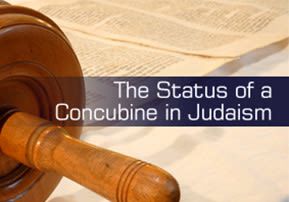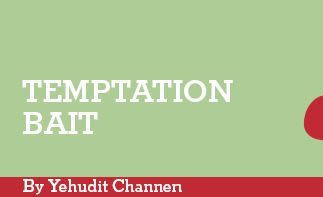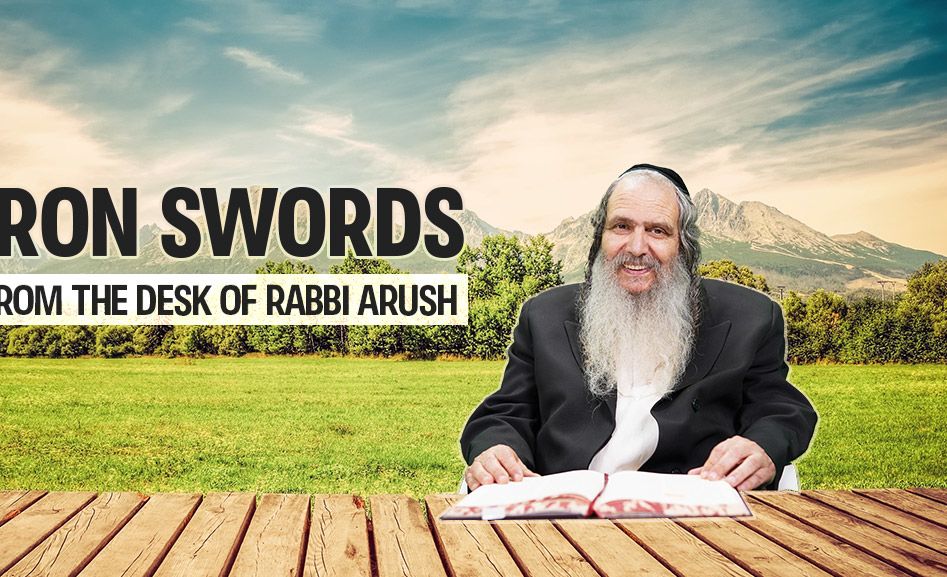
The Status of a Concubine in Judaism
Some believe that there is a Halachic justification for the status of a “kept woman” in Judaism. Is there a license for premarital and extramarital affairs?

The people of Israel were attacked by the nation of Ammon, whereupon the elders of Israel called upon Yiftach to battle with Ammon (see Shoftim 11:1-33). Yiftach attempted to negotiate a peaceful resolution, by sending a delegation to reason with the king of Ammon; but the latter remained inflexible. Yiftach then successfully led his countrymen in battle. They were victorious and eliminated the Ammonite threat, and Yiftach became the leader of Israel.
Yiftach was the recognized leader and a prophet, although logically he wasn’t the most suitable candidate for leadership. His maternal lineage was questionable, and he was not the greatest scholar. Nevertheless, he was accorded the absolute support of the halacha and the people, as the Talmud teaches: “Yiftach in his generation was like Samuel in his generation” (Babylonian Talmud, Rosh HaShana 25b). We learn here not to rely on our own sense of logic, but rather to have faith in the halachic authority as brought down by the Rabbis in each generation. This is the foundation of our legal system and the eternal transmission of Torah.
Son of a Harlot
 “Now Yiftach the Gileadite was a mighty man of valor, and he was the son of a harlot, and Gilead begot Yiftach” (Shoftim 11:1). It was necessary for Scripture to emphasize that Gilead was the father of Yiftach, since it is usually difficult to identify the father of the children of harlots. Although Yiftach is called son of a harlot (zona), Yiftach’s mother was not a regular harlot. Many commentators, including Radak and Malbim hold that Gilead’s first wife was a concubine, rather than a prostitute. A concubine (pilegesh) is not necessarily a second wife, but a woman with whom a man has a physical relationship without a chupah (canopy) and marriage contract. Radak explains that she is called a harlot because she lives with her man without a ketubah (marriage contract) and without the holiness of being properly married (kedushin). For this reason, she is considered in the category of being a harlot, even if she is dedicated to one man alone. Gilead had a relationship with Yiftach’s mother without being properly married to her, because she was from a different tribe. At that time, there was a tradition in Israel, not to marry outside of the tribe, in order that the land should not be removed from one tribe to another (Radak, The Book of Shoftim 11:1).
“Now Yiftach the Gileadite was a mighty man of valor, and he was the son of a harlot, and Gilead begot Yiftach” (Shoftim 11:1). It was necessary for Scripture to emphasize that Gilead was the father of Yiftach, since it is usually difficult to identify the father of the children of harlots. Although Yiftach is called son of a harlot (zona), Yiftach’s mother was not a regular harlot. Many commentators, including Radak and Malbim hold that Gilead’s first wife was a concubine, rather than a prostitute. A concubine (pilegesh) is not necessarily a second wife, but a woman with whom a man has a physical relationship without a chupah (canopy) and marriage contract. Radak explains that she is called a harlot because she lives with her man without a ketubah (marriage contract) and without the holiness of being properly married (kedushin). For this reason, she is considered in the category of being a harlot, even if she is dedicated to one man alone. Gilead had a relationship with Yiftach’s mother without being properly married to her, because she was from a different tribe. At that time, there was a tradition in Israel, not to marry outside of the tribe, in order that the land should not be removed from one tribe to another (Radak, The Book of Shoftim 11:1).The Pilegesh Outburst in our Times
I was quite shocked, when I learned that, nowadays, there are people engaged in premarital or extramarital sex, among those who consider themselves modern orthodox. They justify their actions, to be halachically valid under the category of pilegesh. It is easy to understand why a pilegesh relationship would be ideal for certain noncommittal men, concerned about their personal pleasure. As one man seeking a pilegesh explained,” It is less stressful than an affair, and longer lived than a fling or that elusive one-night stand. A pilegesh is a woman that you are mekadesh, but dont give a kesubah to. I would assume you would need a get to finish the relationship. But it allows casual relationships as since there is no kesubah, you dont have to feed her, house her, bury her, heal her, redeem her and so on, and you dont have to pay her a lump sum upon divorce. You could also do a week with her and then end the relationship if you like.”
It is quite disturbing to read that the fastest growing Jewish relationship sites on the web are promoting Jewish polygamy and the pilegesh relationship. One such site has recently passed the ten thousand visits mark, which is close to three thousand visitors a month on average. Sites as these “help” not only “religious” men but even couples finding a Jewish pilegesh. Surprisingly, more than ten percent of the members of such sites are women seeking to be a pilegesh. Why would a woman choose to lower herself to a status that was always considered degrading compared to having the rights of a full-fledged wife?
In a letter called “Confession” written October 9th, 2007, an anonymous woman explains: “I’ve been a pilegesh for three years with two different men (not at the same time obviously). I keep all the rules. If you saw me in the street, I’d look the same as the other girls. The desperate, naive shidduch daters. I’m frum. I went to a religious high school. Once I turned eighteen, it seemed I would have to get married to be able to act on the feelings I’d been having for a few years. I didn’t like the idea of having to settle down, but it didn’t seem I had a choice. Then I met a girl who changed my life. She was a few years older than me and introduced me to the idea. Not long after, I met my first boyfriend… What I’m doing is not acceptable in the frum community. I understand why it can’t be. If everyone did this, chaos would ensue… I’m glad that I don’t have to get married in order to have this kind of relationship. I believe what I’m doing is halachically valid, even if it’s not accepted. Sure it can be difficult, but on the whole I feel it’s liberating.”
Halachic Justification?
This anonymous woman, who faithfully keeps the laws of mikvah and waits three months between relationships, is convinced, like most others, who allow themselves to become a pilegesh or to have one or more, that this institution is halachically permitted. This misconception is backed up by certain “Rabbis” who “halachically” justify the institution. One of the pilegesh websites even claims to be under ultra orthodox Rabbinic supervision. Yet, most if not all of the “Rabbis” promoting sexuality without marriage are far from orthodox.
Jewish renewal Rabbi, Arthur Waskow, ordained by Rabbi Laura Geller, and Dr. Judith Plaskow, questions whether it is desirable to forbid all sexual relationships between unmarried people, and thereby insist on celibacy for an enormous proportion of Jews in their 20s and 30s, and for divorced Jews. He writes, “From biblical tradition on, there has been a category for legitimate non-marital sexual relationships that could be initiated and ended by either party without elaborate legalities It was called pilegesh, usually translated “concubine,” though it meant something more open, free, and egalitarian than “concubine” connotes in English. Those who prefer the pilagshut relationship may certainly do so… For, perhaps either party is unprepared for the burdensome responsibilities of marital obligations…” In conclusion, Waskow suggests drawing on the pilegesh relationship to “establish a sacred grounding for sexual relationships that are not marriages, and create patterns of honesty, health, contraception, intimacy, and holiness for such relationships.” (Rabbi Arthur Waskow, Sexuality & Spirituality, A Prophetic Voice in Jewish Multi-religious & American Life). Nothing could be further from the holiness and truth of Judaism, as we shall see next week, G-d willing.
To be continued.
***
Rebbetzin Chana Bracha Siegelbaum is Director of Midreshet B’erot Bat Ayin.







Tell us what you think!
Thank you for your comment!
It will be published after approval by the Editor.